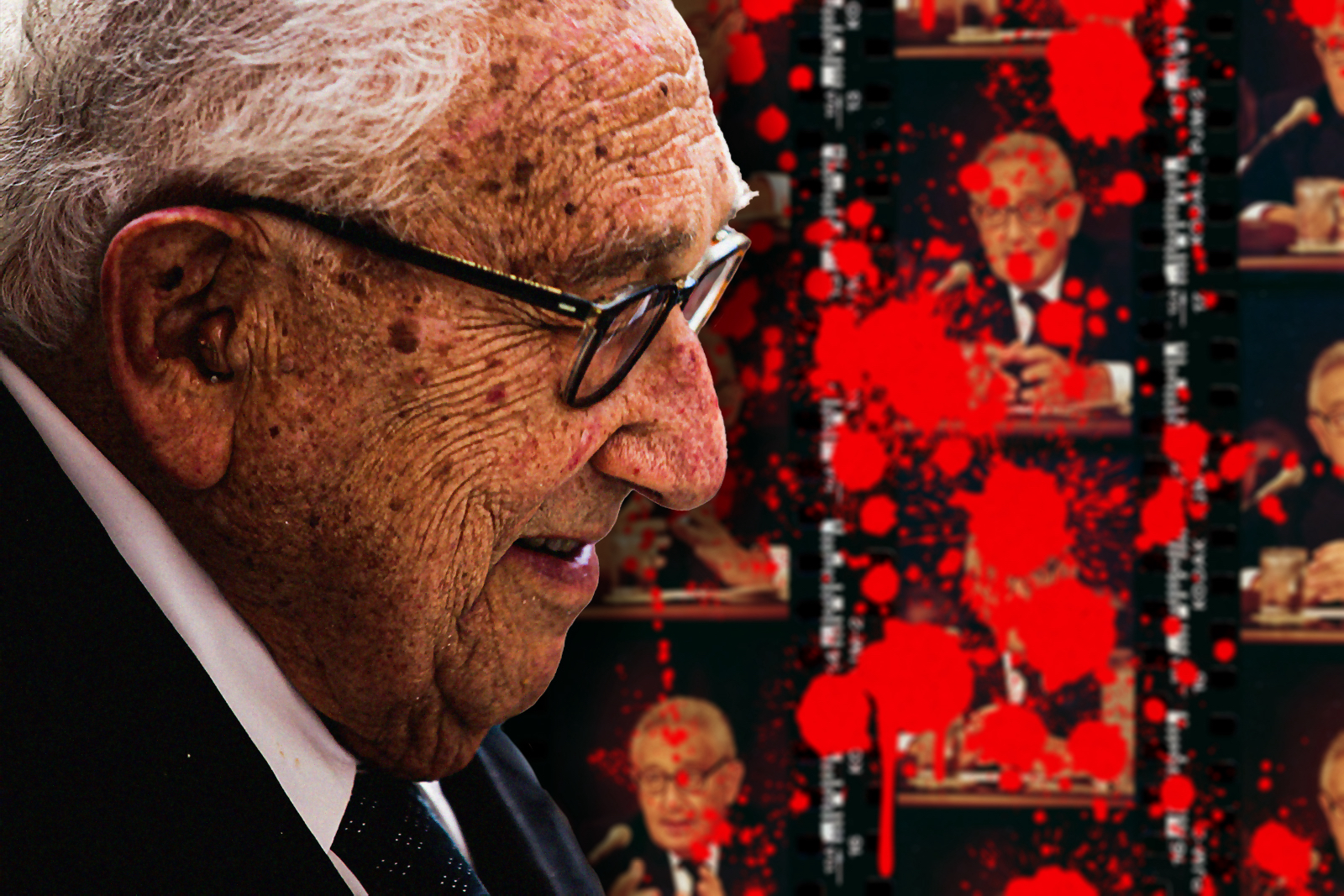
On the Irredeemable Henry Kissinger
Henry Kissinger, once a titan of American diplomacy, died in late November at the age of 100. Despite the reverence from some quarters, his death reignites a debate about his tainted legacy. Far from just a statesman, critics charge him with having a hand in war crimes for his role in America’s brutal bombing campaign of Cambodia and backing brutal dictatorships from Chile’s Augusto Pinochet to Indonesia’s Suharto. These policies, critics say, resulted in the deaths of millions and sowed deep-seated anti-American sentiment. The shadow of Kissinger’s actions looms large, particularly in the Islamic world, Latin America, and parts of Africa, Eastern Europe, Russia, and China—regions still grappling with the long-term effects of his geopolitical maneuvers.
Born in Bavaria in 1923 into a world soon to be scarred by Nazism, Henry Kissinger faced the sharp end of anti-Semitism. His family’s escape to the U.S. via London was a journey from destitution to determination. Kissinger, quickly adapting to his new home, mastered English and shone academically. His naturalization in 1943 was swiftly followed by a wartime draft into the U.S. Army, leading to an ironic twist: he fought against the Nazi regime he had fled as a child. Returning stateside in 1947, Kissinger embarked on his academic odyssey, setting the stage for his future as a controversial figure on the world stage.
Kissinger’s academic saga at Harvard is as legendary as it is ironic. Post-war America became his intellectual playground, where he clinched his Bachelor’s degree in 1950 and then a doctorate with a mammoth thesis on the philosophy of history. The tale of his work’s length is so infamous it’s rumored to have changed Harvard’s rules—an academic myth, perhaps, as Walter Isaacson suggests. By 1954, Dr. Kissinger was a Harvard don, his name soon echoing in scholarly corridors with his seminal work on nuclear strategy. Tenured in 1959, he was a fixture on the faculty until 1969, shaping minds and policy debates alike.
In a twist fit for a political thriller, Kissinger, the Harvard heavyweight, jumped ship in 1969 to steer U.S. foreign policy under President Nixon. Kissinger, who had already whispered in the ears of Eisenhower and Kennedy, took a gamble to end the Vietnam quagmire. He sanctioned covert bombings in Cambodia, aiming to corner North Vietnam into a peace deal. The collateral was harrowing: half a million Cambodians perished, setting the stage for the Khmer Rouge’s bloody reign under Pol Pot, which claimed two million more lives—a legacy that haunts Cambodia to this day with dormant wartime bombs. In an ironic contrast, Kissinger’s hand in the Paris Peace Accords of 1973 earned him the Nobel Peace Prize, sparking such controversy that it prompted resignations from the award committee.
1970 saw the birth of a tragedy in the annals of geopolitics. In East Pakistan, now Bangladesh, Bengali nationalists’ electoral victory was met with genocidal ferocity by West Pakistan’s military, leading to the deaths of an estimated three million people. This dark chapter unfolded under the shadow of U.S. support—an endorsement informed by the strategic counsel of Henry Kissinger.
1970 was a year of stark political shifts in Chile. Salvador Allende, avowing Marxism, won the presidential election, a victory for democracy. However, this triumph was short-lived. On September 11, 1973, Allende’s government was toppled in a coup supported by the United States. Augusto Pinochet, a dictator whose ruthlessness would become infamous, seized power. His regime wasted no time in suppressing dissent, a brutal campaign that led to the disappearance of thousands from 1973 to 1990, leaving a stain on Chile’s history.
Amidst the grim tableau of Pinochet’s Chile, a regime marred by anti-Semitism, an uncomfortable alliance emerged. Israel, despite a history marred by the horrors of fascism, became a significant arms supplier to Pinochet. This paradox was personified in the tragedy of a Chilean Jew, whose torture and death under Pinochet’s rule led his family to seek justice through an unprecedented lawsuit against Israel—a stark example of the complex web of international relations and moral contradictions.
The mid-70s were a cauldron of geopolitical machinations, with Henry Kissinger in the eye of the storm. In 1975, following his counsel, the U.S. gave a tacit nod to Suharto’s Indonesia as it annexed East Timor, an incursion that resulted in catastrophic loss of life.
During the Yom Kippur War in 1973, Kissinger’s swift arms support to Israel enabled a dramatic shift in the war’s tide. His strategy subsequently sought to sideline the Palestinians diplomatically. Meanwhile, in Cyprus, a coup followed by a Turkish invasion—both occurring under Kissinger’s watch—exacerbated tensions, sparking a conflict between Greece and Turkey, despite both being NATO allies. The Kissinger era, in its quest for strategic advantage, often left a trail of human cost.
Post-politics, Henry Kissinger’s influence scarcely waned. He remained a vocal proponent of U.S. policies now infamous for their human toll. In Argentina, his support for Jorge Rafael Videla’s regime coincided with a “Dirty War” that saw tens of thousands disappear or die. Further afield, he backed UNITA in Angola’s harrowing civil conflict and lent support to China even amidst the Tiananmen Square massacre.
Kissinger, a controversial figure, finds his legacy—a mix of diplomacy and support for repressive actions—recognized by figures as varied as Xi Jinping and Donald Trump, a testament to his enduring imprint on global affairs.
In the corridors of U.S. power, Henry Kissinger is hailed as a Cold War colossus, yet globally, his legacy is far more divisive. To millions, he’s not a statesman but a symbol of impunity, his peaceful death at 100 is seen as a stark contrast to the violent policies he orchestrated. This dichotomy stokes the embers of global anti-American sentiment, particularly in light of current conflicts. Many critics hope that Kissinger’s memory will be spared the honors of currency portraits, statues, and public namings—a stand against glorifying figures associated with controversial pasts.

